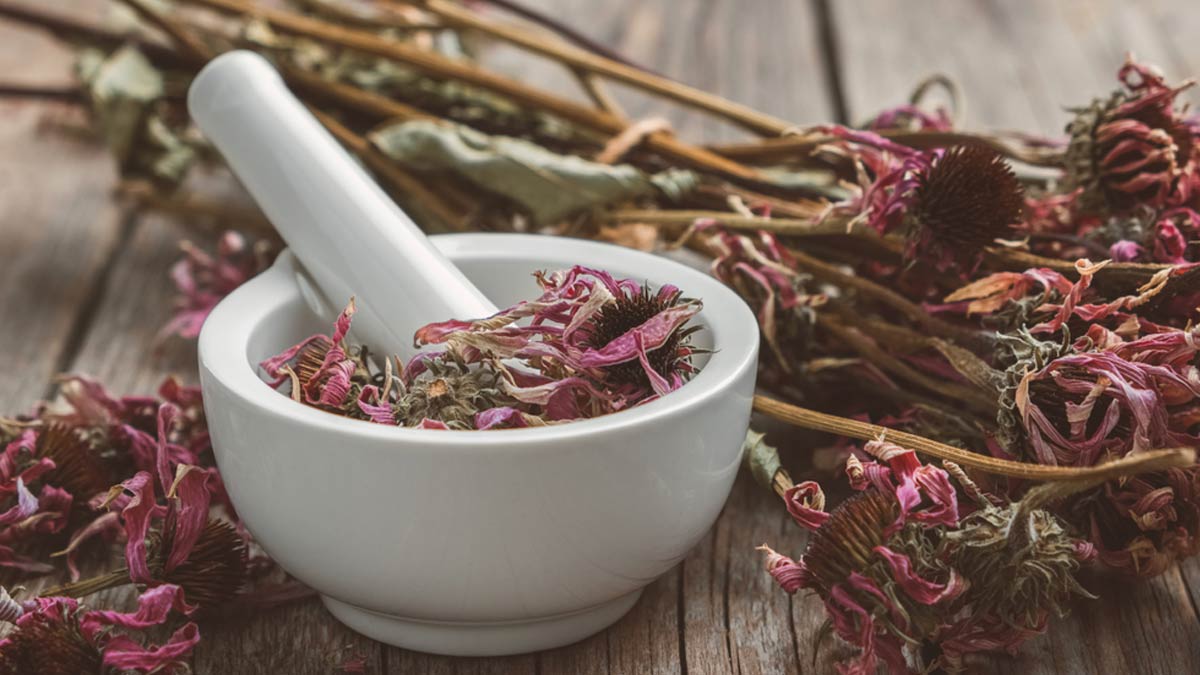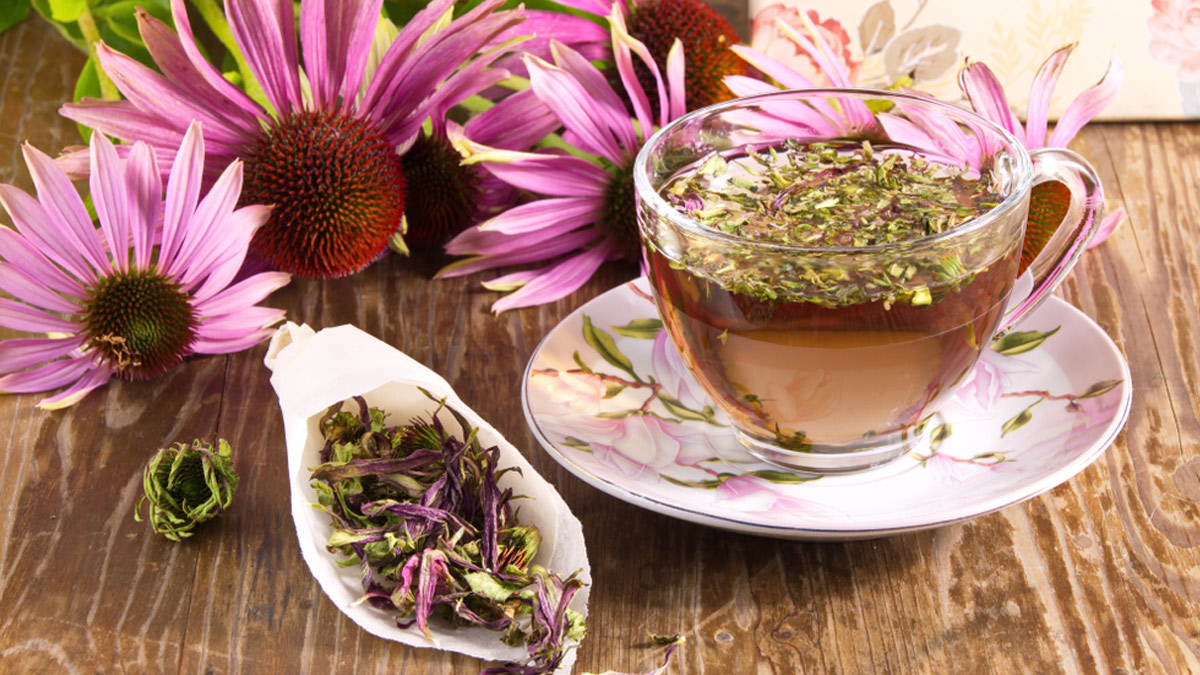
As the seasons change and temperatures drop, it is common to find people grappling with the onset of cold symptoms. From runny noses to sore throats, the common cold can disrupt daily life and leave you feeling fatigued. When these symptoms hit, finding relief becomes a priority, and that's where herbal remedies like echinacea come into play. This vibrant purple flower has been a staple in traditional medicine for centuries and is gaining popularity for its potential to help fight cold symptoms. In this article, we list the benefits of echinacea in combating cold symptoms and enhancing overall immune health.
Table of Content:-
What is Echinacea?

Echinacea, commonly known as coneflower, is a vibrant member of the daisy family. You may have seen people using its roots, leaves, and flowers for centuries to make herbal remedies like teas, tinctures, capsules, and extracts. It is known for its immune-boosting properties and has been a staple in herbal medicine for centuries, helping many find relief and support during cold and flu season.
Benefits Of Echinacea For Fighting Cold
Immune System Support

One of the primary reasons people turn to echinacea during the cold season is its ability to support the immune system. According to a 2015 study, the leaves and roots of this plant have been utilised in herbal medicine to help reduce inflammation and improve immune function.
Echinacea helps your body respond more effectively to viruses and bacteria by increasing the production of immune cells, potentially reducing the severity and duration of cold symptoms.
Also Read: Troubled With A Dry Nose After Cold? Follow These Easy Home Remedies For Relief
Anti-Inflammatory Properties
When you catch a cold, you might notice your respiratory tract becoming inflamed, causing discomfort and making it hard to breathe. Echinacea contains compounds known as alkamides, which exhibit anti-inflammatory effects. This means that when you take echinacea, you can find relief from pesky symptoms like a sore throat, sinus pressure, and nasal congestion, helping you feel a little more comfortable as you recover.
According to a 2017 mouse study, echinacea compounds were found to lower key inflammatory markers and mitigate memory loss associated with inflammation.
Antiviral Effects

In addition to its immune-boosting and anti-inflammatory properties, echinacea has been shown to possess antiviral effects. A review of 16 studies found that the herb was more effective than a placebo in preventing and treating upper respiratory infections, such as the common cold. Echinacea may help reduce the severity of symptoms and promote a quicker recovery by preventing the virus from multiplying.
Enhanced Respiratory Health
Echinacea's benefits extend beyond the immune system; it also supports respiratory health. The herb is known to soothe irritated mucous membranes, making it beneficial for individuals experiencing coughs or sore throats. One review revealed that echinacea could lower the risk of developing an upper respiratory tract infection by 22%. Drinking echinacea tea can provide a comforting effect, helping to clear the airways and ease discomfort.
Also Read: Lingering Cough After A Cold? Expert Explains Reasons For Coughing And What You Can Do About It
How to Use Echinacea To Fight Cold
To maximise the benefits of echinacea, consider starting at the first signs of a cold. You should follow the recommended dosage instructions on the product label, and consult with a healthcare professional if you have any concerns or pre-existing conditions.
You can enjoy echinacea in several ways:

- Echinacea Tea: Brew dried echinacea flowers or leaves in hot water for a soothing herbal tea. Add honey or lemon for extra flavour and additional soothing effects.
- Tinctures: Echinacea tinctures provide a concentrated dose and can be taken directly or added to water or juice.
- Capsules: For convenience, echinacea capsules are available in health stores.
[Disclaimer: This article contains information for informational purposes only. hence, we advise you to consult your own professional if you are dealing with any health issues to avoid complications.]
Also watch this video
How we keep this article up to date:
We work with experts and keep a close eye on the latest in health and wellness. Whenever there is a new research or helpful information, we update our articles with accurate and useful advice.
Current Version